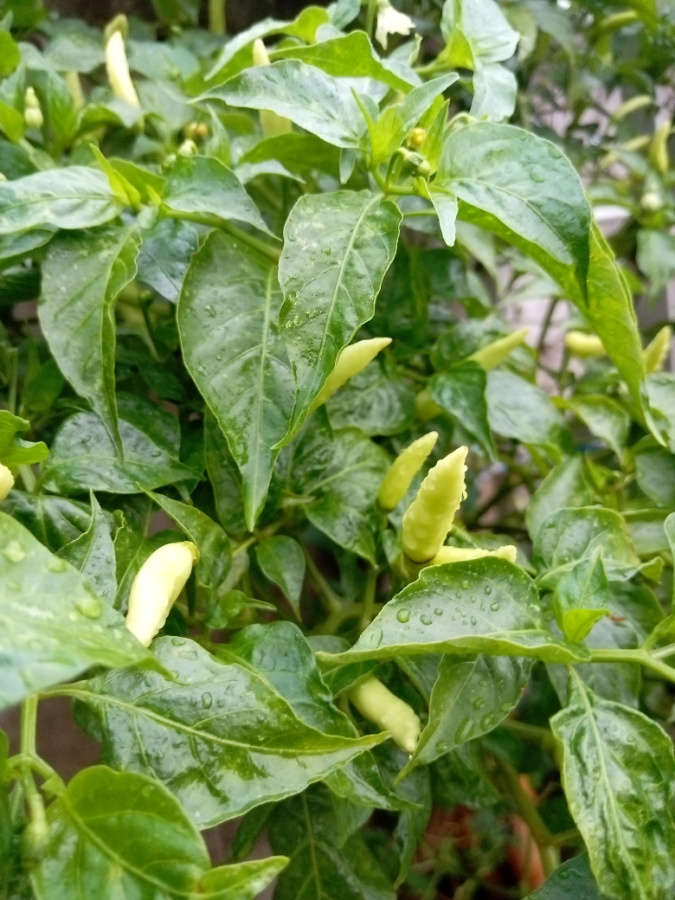Best Fertilizers for Peppers: Make Best Use Of Plant Health and Return
Best Fertilizers for Peppers: Make Best Use Of Plant Health and Return
Blog Article
Organic Vs. Synthetic Fertilizers: Which Is Best for Supporting Healthy And Balanced Pepper Plants?
In the realm of supporting healthy and balanced pepper plants, the selection in between natural and synthetic fertilizers stands as a crucial decision with far-reaching effects. While both alternatives aim to supply crucial nutrients to support plant growth, the subtleties of their influence on the soil, plant health, and the environment stimulate a debate that mirrors throughout the gardening community. Comprehending the distinctive benefits and possible pitfalls of each plant food type is crucial for pepper cultivators looking for to maximize their returns while maintaining an eco-conscious and lasting strategy.
Advantages of Organic Fertilizers
Organic fertilizers supply an environmentally-friendly and sustainable approach to beneficial pepper plants, supplying necessary nutrients without the use of artificial chemicals. These natural fertilizers are stemmed from organic resources such as garden compost, manure, bone dish, and algae, promoting dirt wellness and biodiversity. Unlike artificial fertilizers, organic choices release nutrients gradually, making sure a balanced and constant supply for pepper plants to prosper.
One substantial advantage of natural plant foods is their capability to improve soil framework and water retention. By improving dirt wellness, natural fertilizers advertise useful microbial activity, which assists in nutrient uptake by pepper plants. In addition, organic fertilizers lower the threat of chemical run-off, securing water resources from air pollution and protecting the atmosphere.
Furthermore, natural plant foods contribute to long-lasting dirt fertility by promoting the development of valuable soil organisms. These microorganisms help break down natural issue, launching nutrients in a type that is quickly accessible to pepper plants. best fertilizers for peppers. By promoting a healthy dirt ecosystem, organic plant foods support lasting pepper farming methods that profit both plants and the setting
Drawbacks of Synthetic Plant Foods
Artificial plant foods, in comparison to their natural equivalents, present numerous disadvantages when made use of to nourish pepper plants, affecting both plant health and environmental sustainability. One major drawback of synthetic plant foods is their propensity to leach nutrients from the soil swiftly. This fast leaching can result in nutrient discrepancies in the soil, causing plants to experience deficiencies or toxicities. Additionally, synthetic plant foods can harm advantageous dirt organisms, such as earthworms and advantageous germs, disrupting the dirt ecological community's balance.
Furthermore, the overuse of synthetic fertilizers can add to water air pollution. Excess fertilizers not soaked up by plants can remove into water bodies, leading to eutrophication, where algae blooms deplete oxygen degrees in the water, harming aquatic life. Synthetic fertilizers are usually obtained from non-renewable sources, such as fossil gas, contributing to carbon emissions and ecological destruction during their production.
Nutrient Absorption Comparison
When comparing natural and artificial fertilizers in terms of nutrient absorption, natural fertilizers have the advantage of offering a more balanced and slow-release source of nutrients. Organic fertilizers have a selection of macro and trace elements that are not just valuable for the plants however also promote healthy and balanced soil microbial activity, which assists in nutrient uptake.
In addition, organic plant foods boost soil structure and water retention ability, allowing pepper plants to access nutrients more effectively. This improved dirt top quality promotes root advancement, allowing far better nutrient absorption. Synthetic plant foods, although initially enhancing plant development as a result of their high nutrient concentrations, may hinder long-term nutrient absorption by derogatory dirt health and wellness gradually.
Environmental Influence Factors To Consider

On the other hand, synthetic plant foods, although typically more right away available and focused to plants, can have damaging impacts on the atmosphere otherwise applied effectively (best fertilizers for peppers). Their production needs high power inputs, bring about greenhouse gas emissions and contributing to climate change. Additionally, the overflow of excess synthetic fertilizers can contaminate water resources, causing eutrophication and harming marine ecosystems.
Finest Fertilizer Practices for Peppers
When fertilizing pepper plants, maximizing nutrient uptake and reducing environmental influence are key factors to consider. To achieve this, it is necessary to comply with ideal plant food techniques tailored to the specific demands of pepper plants. One crucial method is to do a dirt test before using any type straight from the source of fertilizers. This examination can identify the pH degree of the soil and identify any type of nutrient deficiencies, directing you in picking the most suitable plant food solution.
Another essential method is to fertilize pepper plants at the right time. Usually, peppers profit from getting fertilizer at growing and then once again when they begin to flower. Over-fertilizing can lead to vitamins and mineral imbalances and damage the plants, so it is essential to follow advised application prices.
Furthermore, selecting a balanced fertilizer with an NPK proportion that fits pepper plants' needs is essential. Organic plant foods, such as garden compost or manure, can be exceptional selections as they launch nutrients slowly and boost soil structure with time. Synthetic plant foods can provide a fast nutrient increase when needed. Eventually, combining synthetic and organic plant foods deliberately can assist support healthy and balanced pepper plants while decreasing ecological impact.
Final Thought

Organic fertilizers supply a sustainable and environmentally-friendly technique to nourishing pepper plants, supplying necessary nutrients without the use of synthetic chemicals. Unlike synthetic plant foods, natural alternatives release nutrients slowly, making sure a steady and well balanced supply for pepper plants to grow.
Artificial fertilizers, in comparison to their organic equivalents, present different downsides when utilized to nurture pepper plants, influencing both plant health and wellness and environmental sustainability. When comparing synthetic and organic fertilizers in terms of nutrient absorption, natural fertilizers have the advantage of providing a much more well balanced and slow-release resource of nutrients.Additionally, natural plant foods boost soil framework and water retention ability, allowing pepper plants to access nutrients extra efficiently.
Report this page